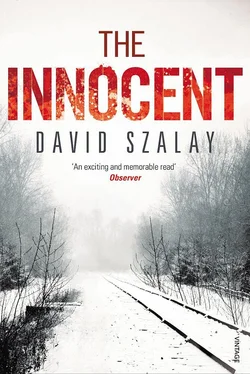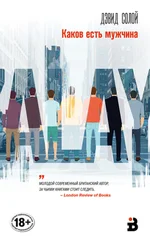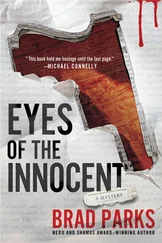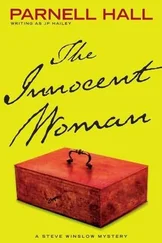David Szalay
The Innocent
February 1917:February Revolution, abdication of tsar, formation of Provisional Government
October 1917:October Revolution; Lenin overthrows Provisional Government and establishes Soviet power
1919–21:Civil War and Allied intervention
1921:Famine and introduction of New Economic Policy (NEP), which restores private property and free-market mechanisms to much of the economy
1924:Death of Lenin
1929:‘Stalin Revolution’. End of NEP, start of first industrial Five Year Plan and collectivisation of agriculture
December 1934:Murder of Sergey Mironovich Kirov, a member of the Politburo, in Leningrad
1937:‘Great Purge’
June 1941:Nazi Germany invades the Soviet Union
1941–45:‘Great Patriotic War’
March 1953:Death of Stalin
September 1953:Khrushchev takes over as First Secretary
February 1956:Khrushchev makes ‘Secret Speech’, in which he denounces Stalin, to Twentieth Party Congress; process of ‘de-Stalinisation’ starts
October 1964:Khrushchev succeeded by Brezhnev as First Secretary and Kosygin as Premier
1968:Richard Nixon elected President of USA
May 1972:Nixon visits Soviet Union
July–September 1972:Bobby Fischer of the USA and Boris Spassky of the USSR contest World Chess Championship in Reykjavik
August–September 1972:Olympic Games in Munich
October 1972:US–Soviet Trade Agreement signed; Brezhnev to visit USA in 1973
For my parents
WHEN HE WAKES it is dark. He fell asleep listening to the birds twittering in the cherry tree outside until their twitters were the only thing he was aware of. When he was no longer aware even of them, he dreamed of Metelyev Log. Exactly what, he does not know, but for a few minutes, when he wakes, he has a very strong sense of the place.
Still lying on the sofa in the dark, he sees that the sense he has is not so much of the place as of himself as he was then, when he was there, in 1948. The place, of course, is part of that – so much so that he feels it would be possible to undertake some sort of interrogation of it, that it would have something to say to him about himself, as he was then.
Standing slowly, he turns on the overhead light, then the record player – the greenish dials spring to life with a soft thump – and puts on the LP of Rikhter playing Bach. Some preludes and fugues from the Well-tempered Clavier . Having such strong associations with Metelyev Log, the music hugely intensifies the sense he woke up with, which had been starting to dissipate in the warm, 1972 night air. After a few moments of almost hallucinatory evocation, however, the effect turns sad. The music, while evoking a place and a time – they seem the same thing – with extreme intensity, also emphasises distance, and so nostalgic indulgence turns to sadder appraisal. He thinks of the people. Of Mikhail Naumovich Lozovsky, who was arrested in the summer of 1948.
Of his wife, Nadezhda.
THE 1930S WERE a period of feverish activity, and stupendous progress was made in a short time. A thousand important projects seemed to be proceeding all at once. I started the decade as a student at the Feliks Dzerzhinsky OGPU Higher School in Moscow. It was a period of immense excitement. We felt like apostles, prepared to sacrifice everything in the name of the monumental struggle in which we were engaged. The making of Communism was something sacred to us. I find myself using Christian language, and I suspect that Christianity was in part the muddled response of a pre-scientific age to some of the same things that Marxism is a scientific response to – the need to make sense of our existence, and the need for hope. So it seems natural to use the same sort of language. The language of faith. The language of a new heaven, and a new earth. Because that was what we thought we were making – a new heaven, and a new earth. As Blok put it, ‘Everything had to be new, so that our false, filthy, tedious, hideous life was transformed into a just, pure, merry life.’ That, for us, was the spirit of the 1930s. The forties were more sombre. There was the war. And after the war, the exhausted peace. It was less easy, then, to have faith that we were making a new heaven and a new earth. I think, for all of us, there were, in the late forties, moments of doubt.
The place was known as Metelyev Log. It was not a village, or a settlement of any sort, just an old summer palace out in the sticks, then a sort of hospital. It was not far from Sverdlovsk. Nevertheless, it took a few hours to get there. The train puffed up a little, mountainous spur into the forest. The nameless little stations, with their slippery log platforms, were empty. It was raining. I remember thinking: what a place to hide, up here in this silent forest, far away from everything.
I was there to speak to one of the inmates, Anatoly Lvovich Yudin. It was too late to see him on the night I arrived. I stayed with Lozovsky, the director of the hospital, and his wife. Lozovsky was, or had been, one of the stars of Soviet science. He was then in his mid-forties, his reddish hair starting to turn grey. He warned me that we were ‘in the country’. ‘Oh, I like that,’ I said. ‘Don’t worry. I like the country.’ However, my shoes were not suitable for the short walk to his house, which seemed to be in the forest somewhere.
Though he warned me that Yudin had severe mental and physical disabilities, he was not very specific. He said it would be easier to explain once I had met him. The meeting took place the next morning in his office, a large, plain room, the windows of which overlooked what was once perhaps a lawn, now more of a meadow, sloping down to the shore of a lake. In fact, Yudin was an ordinary-looking man. I knew him immediately from photographs I had seen, though when I met him his head was shaved, like a prisoner’s. The only sign that there was perhaps something wrong was the fact that, with a hand on his elbow, a pretty, dark-haired young woman seemed to be steering him into the room. Was he blind? No – he saw me and smiled. There was, however, something strange about this smile.
Lozovsky shut the door.
‘This is Doctor Anichkova,’ he said, introducing the young woman. ‘And this is …’
Though he was still smiling, Yudin was obviously frightened. ‘Hello,’ I said, and held out my hand. ‘Anatoly Yudin?’ And then the first strange thing happened. He hesitated for a moment, tried to take my hand – and missed it. That he was able to see it was obvious. His eyes were fixed on it purposefully. Nevertheless, his own hand kept squeezing empty air. Puzzled, I took it for a moment. ‘Are you Anatoly Yudin?’ I said.
When he said nothing, just smiled steadily in the same frightened, unsettling way, I looked at Lozovsky, who also said nothing. ‘Could you tell me your name?’ I said to Yudin. At first he did not seem to understand. Then, when I asked a second time, speaking very slowly, he said, ‘Okay, yes,’ with a serious nod. He did not, however, tell me his name. ‘Your name,’ I said. ‘What is it?’
He seemed perplexed – ‘I … I …’
‘What’s your name?’
‘It’s …’ He was no longer smiling – his expression was painful with effort. He shook his head.
‘Is it Anatoly Yudin?’
‘Anatoly Yudin,’ he said, though seemingly without understanding what the words were.
Читать дальше












